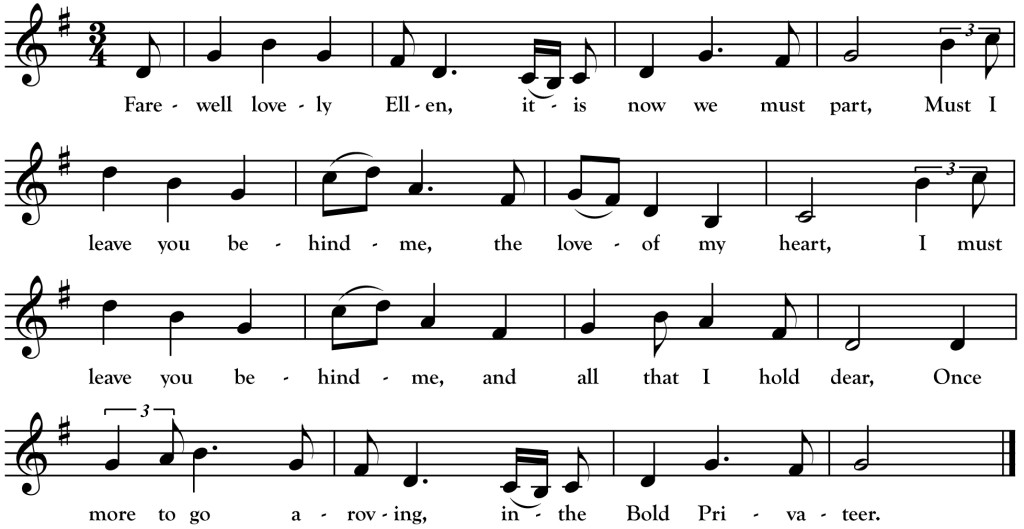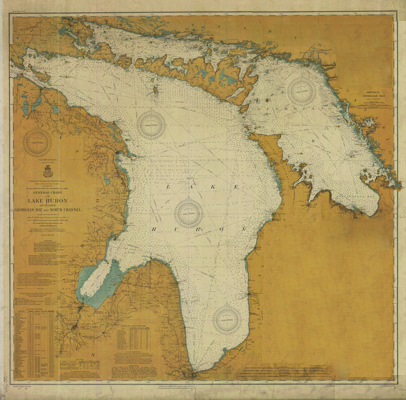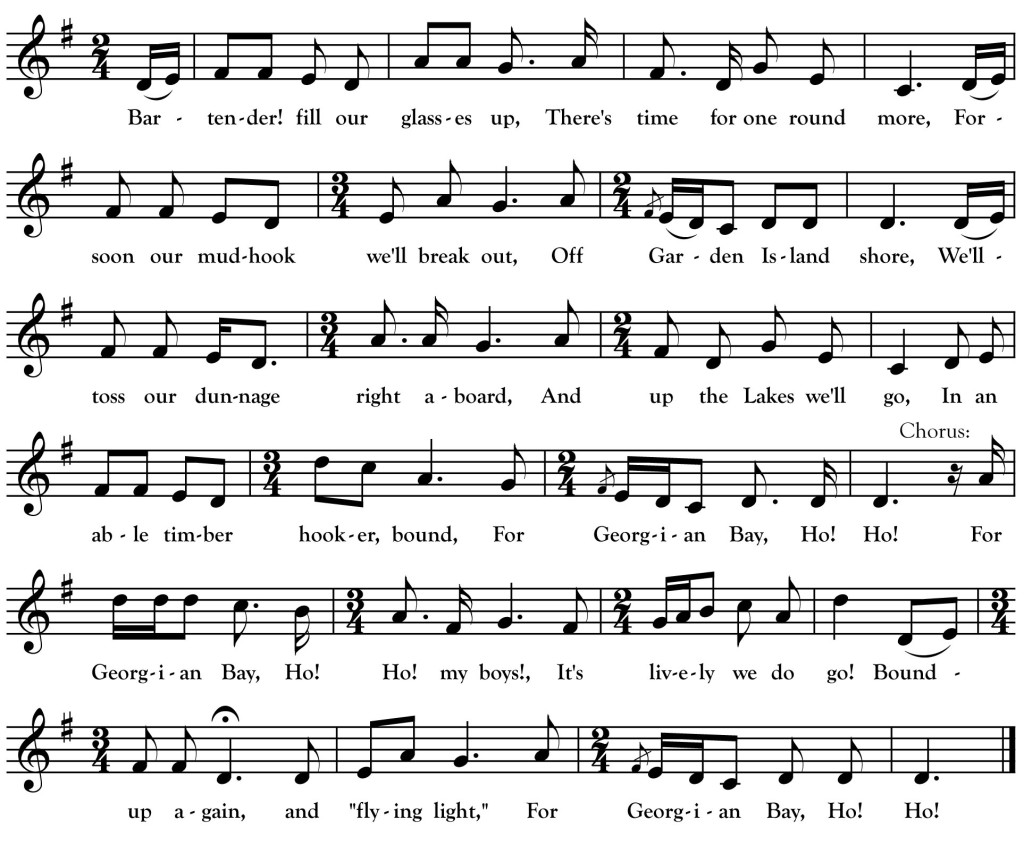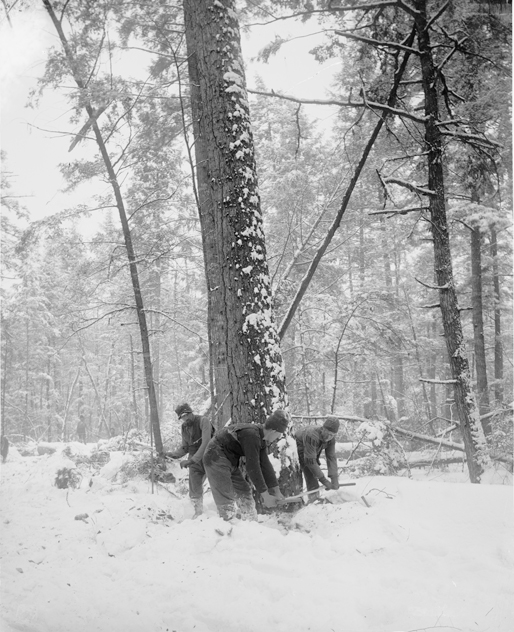The Bold Privateer
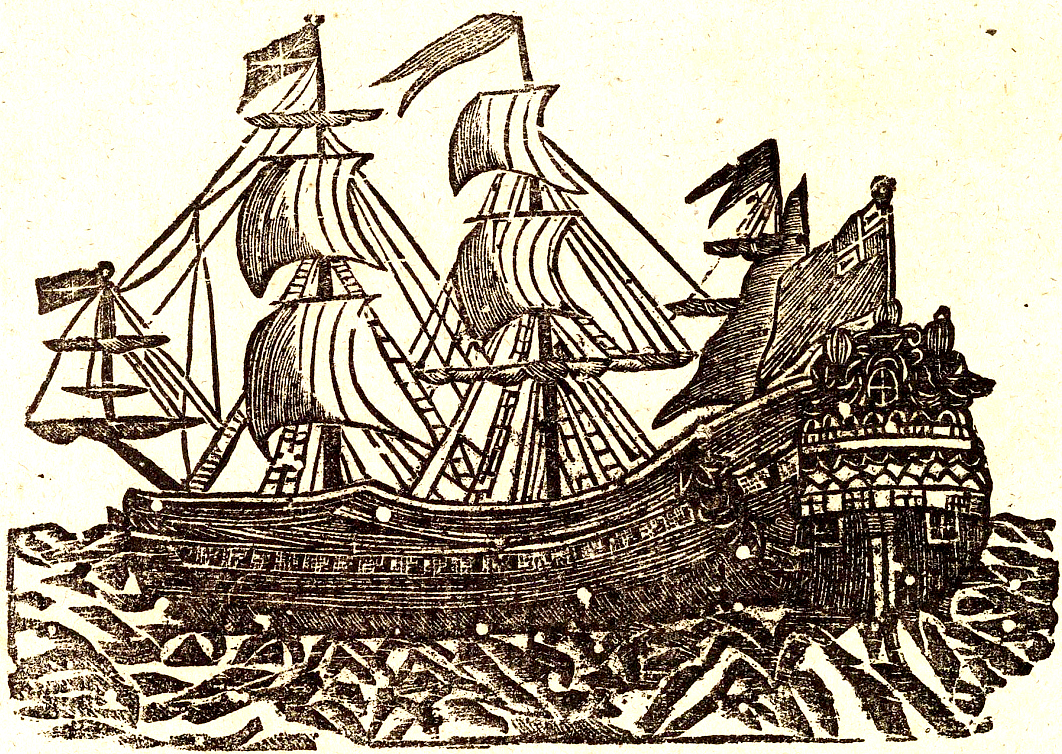
Farewell lovely Ellen, it is now we must part,
Must I leave you behind me, the love of my heart,
I must leave you behind me, and all that I hold dear,
Once more to go a-roving, in the Bold Privateer.
The foe they are treacherous, right very well you know,
Did they not kill their own poor king, not so very long ago,
You had better stay at home, with the girl that loves you dear,
Then to roam the wild ocean, in the Bold Privateer.
Our boat lies on the strand, and our ship lies in the bay,
Farewell my dearest jewel, for I can no longer stay,
Our ship she lies awaiting, so fare you well my dear,
I must now go on board of the Bold Privateer.
There is no one can tell, what hazards you may run,
So many have been slain, since this cruel war’s begun,
You had better not go, and leave your Ellen here,
For I dread to see you leaving, in the Bold Privateer.
Fear naught lovely Ellen, I fain would with thee stay,
But gold I must gather, for our wedding day,
We will soon beat down the pride, of the lofty Mounseer,
And will soon let them know, she’s the Bold Privateer.
Then since you are a-going, Good Luck attend to thee,
May kind Heaven protect you, on land or at sea,
May kind Heaven protect you, wherever you may steer,
And send you safe back, in the Bold Privateer.
Now the prizes we have taken, are from France and from Spain,
And my true love at home, she shall share the gain,
And when the war’s are over, I’ll return unto my dear,
And go no more a-roving, in the Bold Privateer.
_____________
On Februray 20th, 1927, the New York Times “Queries and Answers” section ran a request from one Joseph F. McGinnis for a full text of the above ballad to which McGinnis knew the melody but only the first two verses. McGinnis (featured in last month’s Northwoods Songs) was born in Kingston, Ontario and learned songs as a sailor on the Great Lakes before settling in New York City. McGinnis’s New York Times request was answered by none other than renowned Derry song collector Sam Henry. Henry supplied McGinnis with the missing verses and went on to correspond with McGinnis over the next few years. Henry even printed two songs contributed by McGinnis (“The Deserter” and “The ‘Crummy’ Cow”) in his “Songs of the People” column that has since been published in book form and is regarded as one of the finest collections of Irish traditional song in the English language.
McGinnis, who traded songs by mail with Minnesota singer Michael Cassius Dean, also sent Henry a copy of Dean’s songster The Flying Cloud. Irish song scholar John Moulden theorizes that Dean’s songster had a significant influence on Henry’s subsequent “Songs of the People” columns! (see this 2007 talk by Moulden)
The above text comes from a typescript prepared by McGinnis for “Songs of the Dogwatch”—his own collection of songs which was never published. The above melody is also based on the transcription that appears in the McGinnis typescript but I have taken liberties with rhythm and key signature to conform the air to what I believe is more probable.

